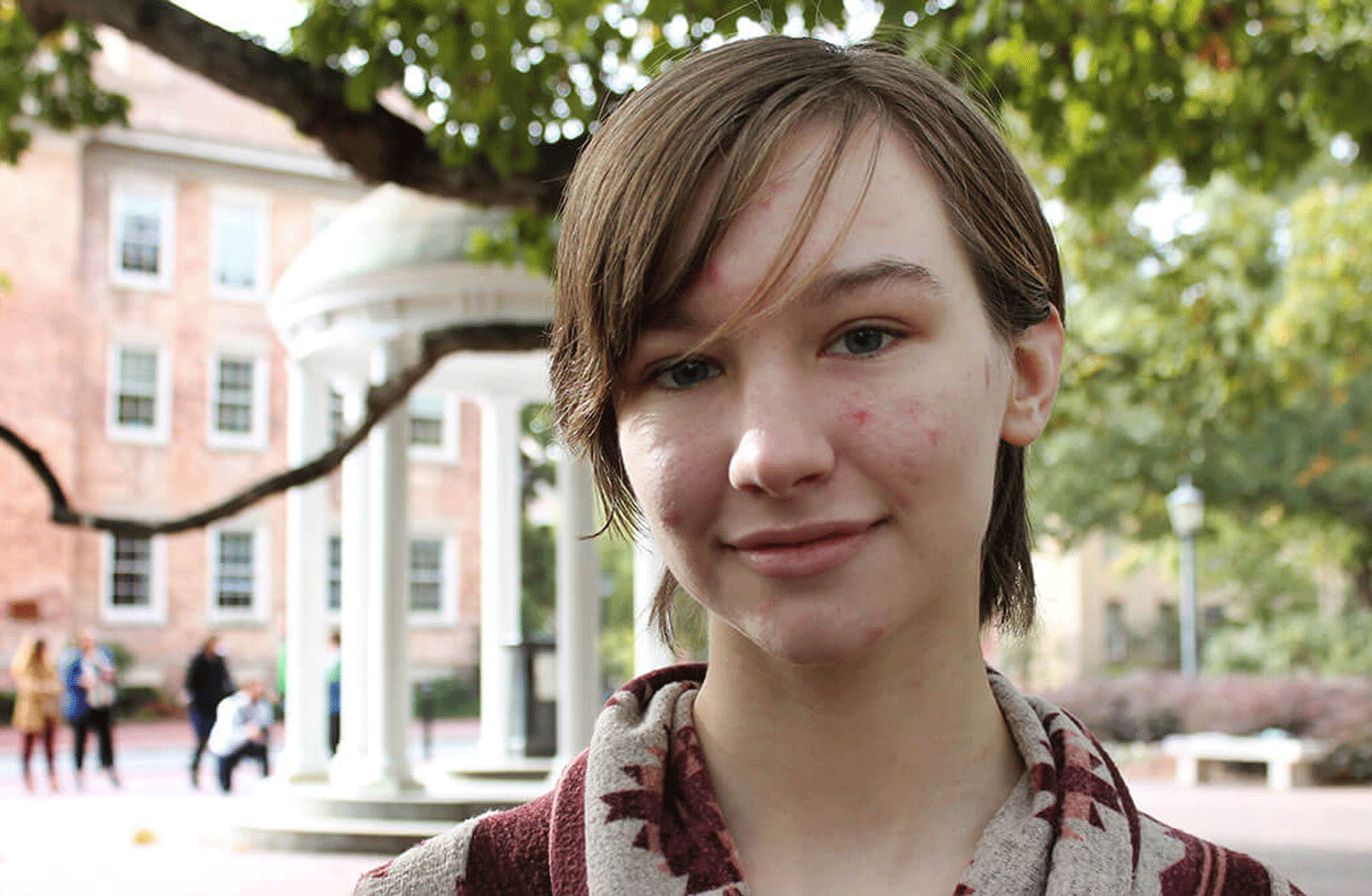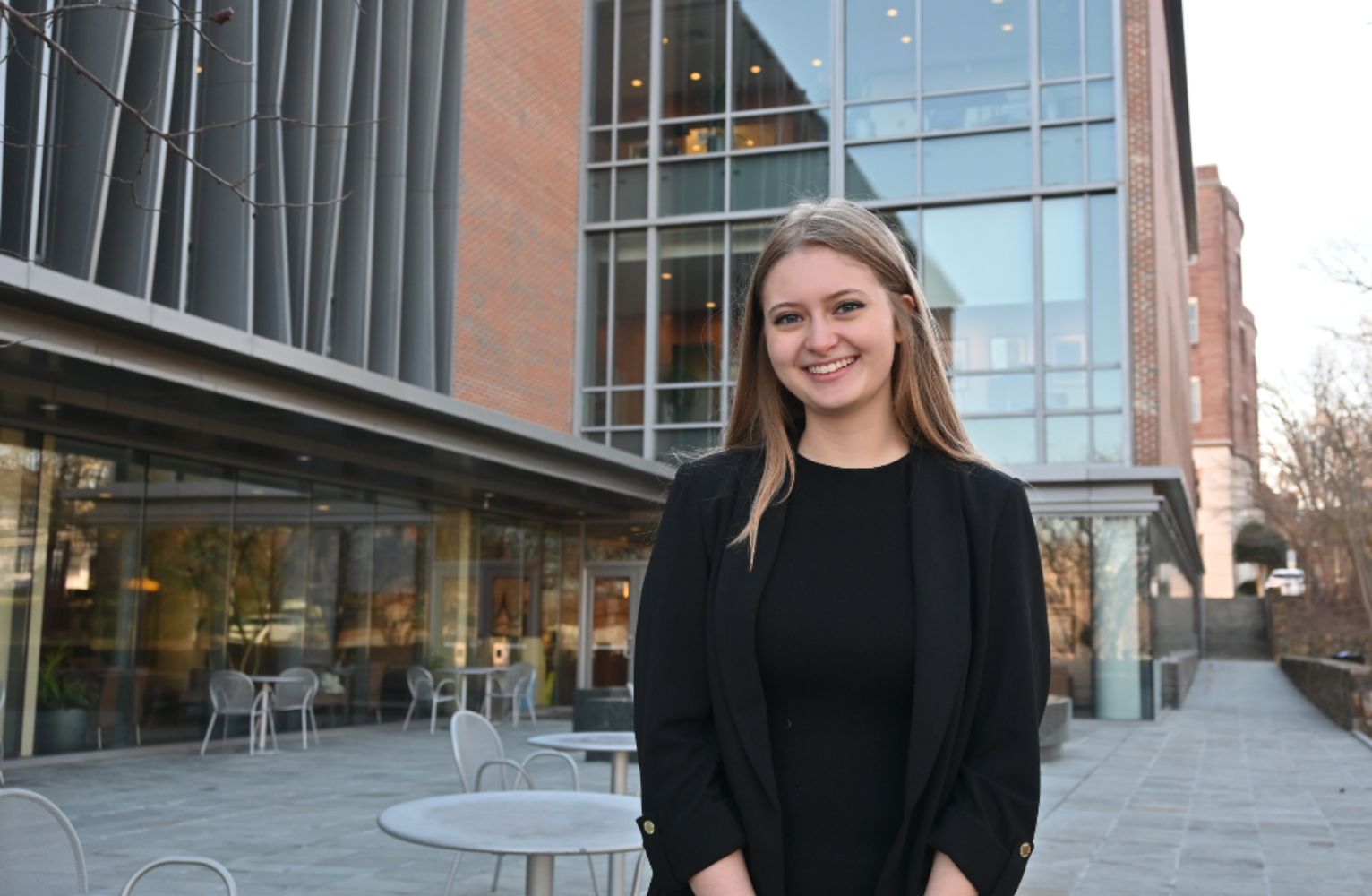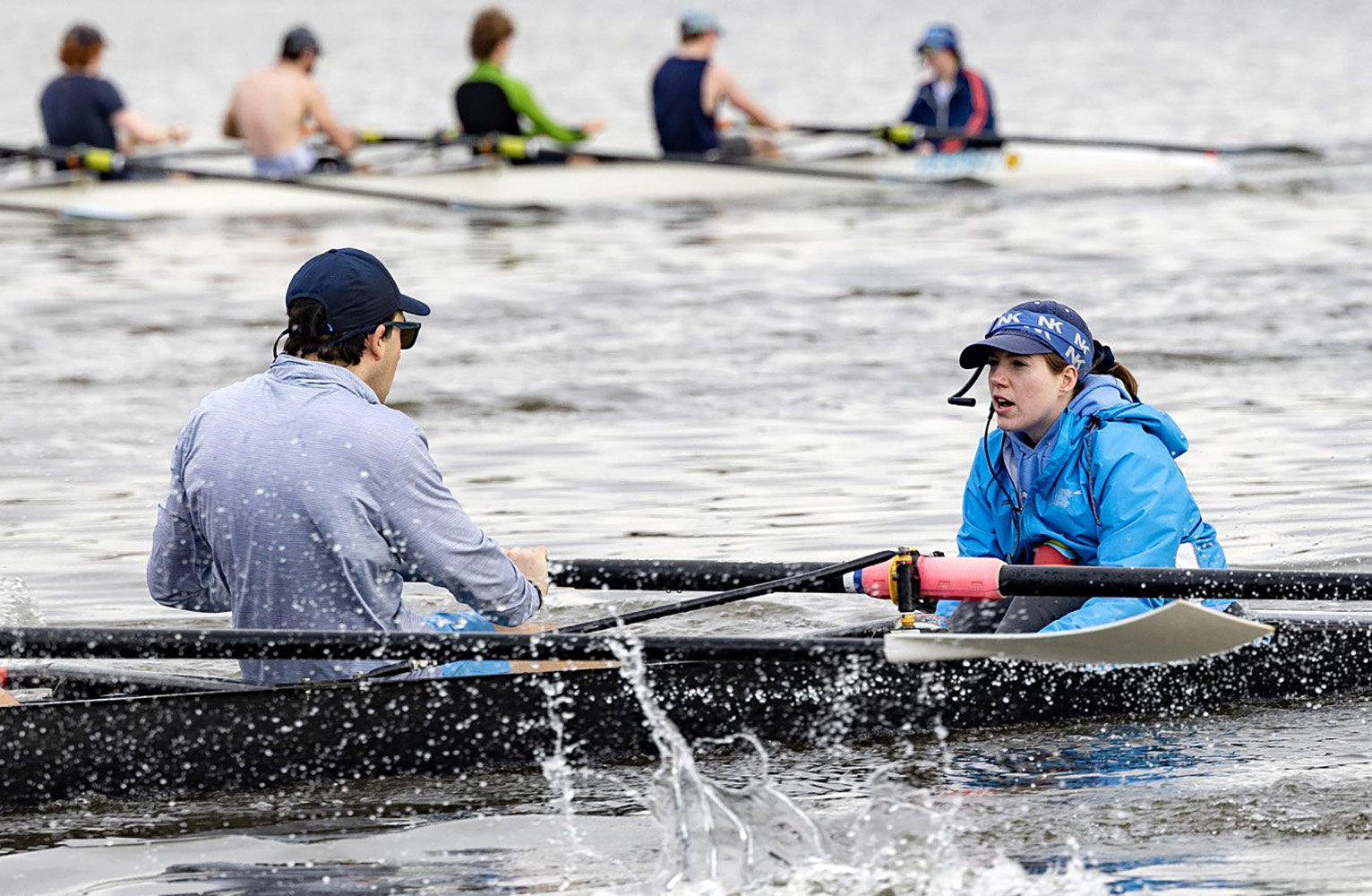
For Kayleigh Olecki ’21 — a computer science and Japanese double major — “marketable” is a word she’s been thinking of since high school.
She served as class president, graduated with valedictorian honors and recorded more than 200 service hours during her senior year, earning the Presidential Service Award. It was in a small business course where she began to think about the word “marketable.”
Could she combine her love of gaming and computers, and an interest in Japanese language and culture, into a college major, and even a career?
She spent her early years in Plymouth, Massachusetts. Visits to family in Connecticut yielded an introduction to and love of video and computer games.
“I wanted to be just like [my uncles],” she said. “They always had the coolest tech.” Her uncle Brian studied computer science in college and worked for Microsoft.
That love of computers stuck with her, even after an 11-year-old Kayleigh and her family moved to Creswell, a town of about 300 in eastern North Carolina. She excelled in school, and after attending a leadership conference for high schoolers at N.C. State University, she planned to spend her college years in Raleigh, majoring in computer science.
An email from Carolina promising Kayleigh an opportunity to graduate debt free changed those plans. The Carolina Covenant would make it possible to study computer science and Japanese in Chapel Hill without Kayleigh or her family having to take out loans. This past summer, she received another email, informing her that she was a Vetter Military Family Scholar — an extension of the Covenant specifically for students from military families. Her dad served in the Navy, but when asked who in her family had served in the military, she quickly responded “Who hasn’t served in the military?” Three of her grandfathers and several extended family members were part of nearly every branch of the Armed Forces.
The Covenant and Vetter Military Family Scholarship have enabled Kayleigh to major in the disciplines she’s passionate about. She has a work-study job at the virtual reality station in the Undergraduate Library, where she modifies programs to best benefit students. With the help of a Foreign Language Area Studies scholarship, she studied abroad in Japan for two months after her first year, immersing herself in the language and culture. Before Carolina she had never taken a Japanese language course; now she is already taking advanced courses in the subject.
“If I had taken out loans, study abroad could have never happened,” she said. “UNC is like, ‘Here are all these opportunities.’”
Kayleigh could have gone to college elsewhere, but Carolina gave her the opportunity to pursue her passions without worrying about financial burdens. She’s also keenly aware that many of the major tech giants are based in Japan, and that these opportunities are making her “marketable” for the world beyond Carolina’s stone walls.
Kayleigh was named as a Vetter Military Family Scholar in Fall 2018 and is supported by the Red, White and Carolina Blue Challenge.
Related Stories




